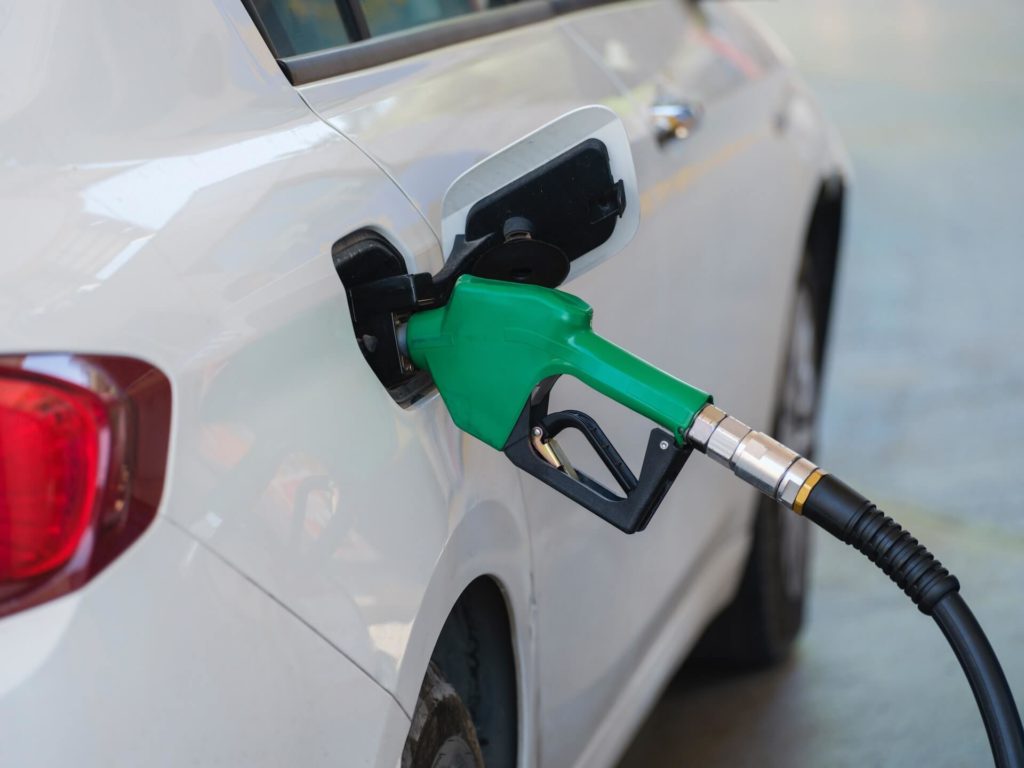With ongoing pressure on the food industry about the environmental impact of using cooking oil on a large scale, you might be wondering what is the best course of action for you and your business to save money and reduce your environmental impact. The options aren’t always clear when it comes to used cooking oil, so we thought we’d provide some clarity on the topic in our latest blog.
So, what are the environmental impacts of improper disposal of cooking oil? You can offset environmental damage caused by improper storage, collection, and disposal of used cooking oil by employing 2 key, forward-thinking practices; following proper used oil storage procedures and repurposing used cooking oil once your business has finished using it.
Continue below to learn more about used cooking oil and the environmental risks associated with using it, as well as how BioUKFuels create its industry-leading biodiesel.
What Are The Environmental Impacts Of The Improper Disposal Of Waste Oil?
When working with large amounts of cooking oil, if it is not stored properly or disposed of incorrectly, the environmental and infrastructural damages can be long-lasting or needlessly straining on council resources.
We’ve outlined the main factors of these harmful outcomes below, ranging from groundwater contamination to blocking of drains and surface-level grime.
What Are The Main Environmental Factors Worth Considering When Dealing With Waste Oil?
Assessing the environmental impact of waste oil storage should be done by the owner of the business that uses the oil. As we are working with cooking oil, usually this responsibility falls with the person in charge of the kitchen. If standards aren’t met, then the responsibility falls on them. When dealing with waste oil, you need to consider the main environmental risks that will be assessed by your:
- Local Council
- Environmental Agency
- Food Standard Agency
- Owner of the property where your business is located
With these relevant bodies in mind, we have listed the following concerns that will be assessed by certain officials concerning your business in the service industry.
As part of their ongoing assessments of your business and its practices, they will see how you are storing your waste oil. The improper storage of oil leads to spills which lead to contamination of the environment.
Since oil isn’t dissolvable in water, it is incredibly hard to clean up. Even when you get it off the ground, it will still make its way into the ground if it ends up in a landfill.
Oil’s natural propensity to float on top of water makes it ever-present in the water systems it comes into contact with. This causes a wide variety of environmental factors.
Environmental Risks To Groundwater
Groundwater is all freshwater that collects on earth due to the earth’s rain cycle. Once it has fallen, it soaks into rivers, streams, ponds, lakes, and other freshwater bodies. It is present under all land, precipitating from the surface down to the bedrock. Since this water finds its way into reservoirs, it is important to make efforts at a personal and community level to help keep this water healthy for us all to use.
One oil gets into a flat body of water, and it completely covers the surface, sometimes spreading out to be thousands of times its original size. It has been noted that one tablespoon of waste oil can cover half an acre of flat water, changing the surface of that water until it is removed. This coverage of the top layer of water causes the water to be less rich in oxygen, harming all aquatic life below.
Environmental Risks to Plants
Not only is this water used by humans but plants and crops too. In any environment, groundwater is used by plants and crops in photosynthesis, and any changes to this water have a knock-on effect.
When waste oil comes into contact with a plant, it can cause issues with the plant’s access to light through its leaves, hindering photosynthesis. Once the waste oil gets into a crop field, plants have been noted to reduce biomass, with knock-on effects on their root and leaf growth also being noted.
Once the oil has soaked into the ground, it ceases to be as arable as it once was, which is a huge issue for farmers all over the world. Considering agriculture is responsible for around 70% of all global freshwater usage, keeping our freshwater pollution free is extremely important.
Environmental Risks to Infrastructure
You might have seen the epidemic of fatbergs in the news lately, large masses of fats and grease that collect in the sewers which often mix with other materials and cause blockages. Cities, often where you find high-density restaurants and other eating establishments, are where these ‘fatbergs’ collect and cause massive issues for the local councils when maintaining the sewers.
These ‘fatbergs’ can, if small enough to do so, leave the sewer network and enter the sea, often bringing with them many undesirable contaminants along the way.
The Guardian notes;
“Thames Water’s network protection team has been visiting food establishments in the area, to make sure they are not putting fat, grease and oil down their sinks and that fat traps are installed and working.
Matt Rimmer, Thames Water’s head of waste networks, said: “This was a massive and disgusting blockage that took a great deal of effort and teamwork to clear and get the sewer working well again.”
The improper disposal of waste created in industrial kitchens is believed to be the main contributor to these issues faced by the councils of major cities here in the U.K., which is why restaurant owners and workers must dispose of their waste responsibly.
Stains, Pools and Smells
Improperly disposed of grease not only affects our world underground but overground and in our everyday lives, too. In our experience, we can see waste oil spills in storage areas causing slippery surfaces and unsightly stains which are hard to remove.
If you work in the restaurant trade, you know just how troublesome oil spills are. If that oil has been in a busy fryer for a week, we don’t need to remind you of the smell and colours that oils pick up. If not properly attended to, waste oil can gather complaints from nearby businesses or even food and health officials.
The correct storage and disposal of oil on your site is your responsibility and can lead to fines, lower health ratings or even closure if not properly met. Fortunately, BioUKFuels offers a collection service for all waste oil and grease for the catering industry, and you can often earn money from us by turning this waste into Biodiesel, a green fuel for vehicles.
How Can I Dispose Of My Waste Oil?
Catering industries need to have their waste oil removed from their sites at appropriate times to stop any of the above issues from occurring. This process is often overlooked by budding businesses and sometimes not properly considered, so we here at BioUKFuels have a few tips and solutions at hand to help you not only be proactive with your waste but also earn money from this waste, too.
How Can I Earn Money With My Waste Oil?
At BioUKFuels, we recycle your waste oils and make biodiesel as a result. With this fuel, you can power most diesel engine vehicles with no modification and with little to no difference in performance.
When we collect your oil, we don’t charge a fee at any point. If we collect 100 litres from you at any one time, we will pay you for this service.


What Environmental Effects Do BioUKFuels Offset?
When you have BioUKFuels collect your waste oil, you can help protect the environment in a few ways.
- Conscientious collectors – Our collection team is proactive about oil waste and oil spills
- Biofuel vans – Our vans run on a blend of petroleum diesel and Biofuel, meaning our collection teams make less of a carbon impact than other oil collection companies
- Fewer collections – Because you only earn money back if we receive 100 litres or more from your business, it could be better practice for you to hold on to your oil waste until you reach this point. This cuts down on unnecessary pick-ups between us and your business
- Strategic pick-up days – Since our collection teams work all across the mainland U.K., we strategically plan collection routes to save on fuel usage
- Duty of care – paperwork is provided with each collection
Be A Part Of Our Self-Sustaining Cycle
Here at BioUKFuels, we are committed to changing the way the catering industry recycles waste cooking oil. Based in Sheffield, we have close connections with most of the North of the U.K. and a direct link to the South via the M1.
This ability to link between cities allows us to be one of the most efficient collection agencies in the U.K., cutting our C02 emissions drastically compared with competitors.
Your oil waste doesn’t have to be an environmental concern as you can see, it can be used to power efficient vehicles in a self-sustaining cycle if properly managed. Becoming a part of this modern cycle is as simple as Getting In Touch with our dedicated team today.
Bio UK Fuel Faqs
How Can I Dispose Of Household Waste?
If you are wanting to dispose of oil as a general member of the public, then you can use a Civic Amenity site (commonly known as a household refuse site) which isn’t suitable for industrial waste disposal.
Read more about disposing of your waste oil in one of our first ever blogs.
Do I Need To Prepare My Oil For Collection?
No, we do all the work.
We filter the waste oil through sieves that decrease in size incrementally to catch all particles suspended in the oil. We then heat the oil to 110 Celsius to remove any water, then apply a series of chemicals, a process we call ‘transesterification’ to prepare the oil for biodiesel purposes.
Can You Pour Cooking Oil In The Garden?
You shouldn’t pour cooking oil in the garden, but it is better for the environment than most pesticides and weed killers.
As we have discussed in this blog, oil is damaging to plants. In a way, this makes it a potent weed killer. There are other reports online that you can add used oil into a spray bottle to direct used oil onto weeds, which will have an effect by blocking photosynthesis and oxygen for the plant, killing it.
The long-lasting environmental risks of using oil in your garden are better than those risks posed by weedkillers.


